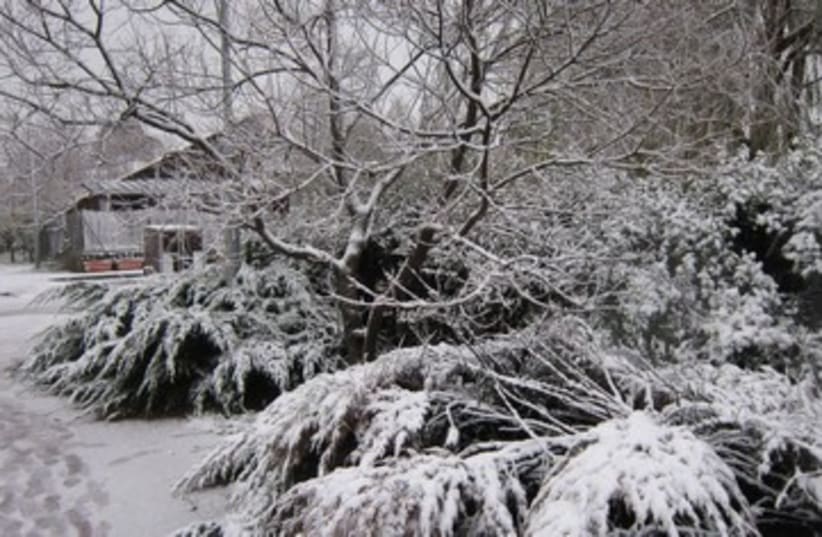
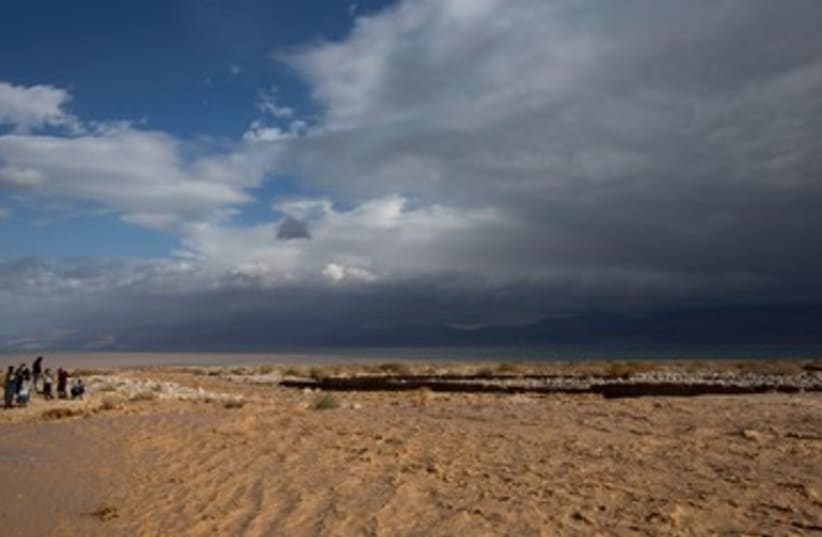
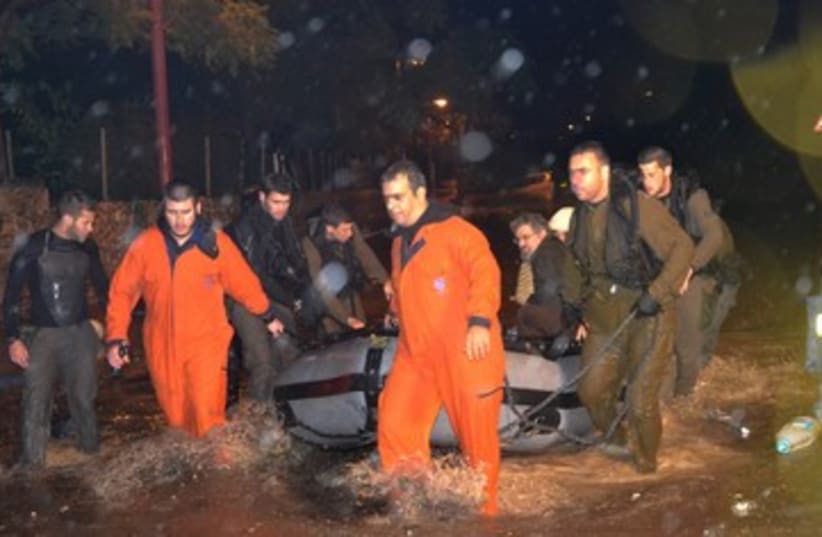
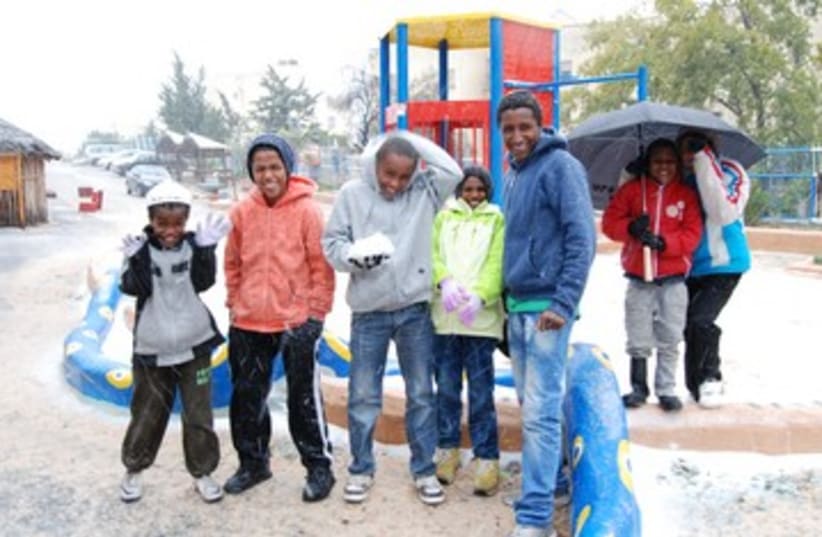
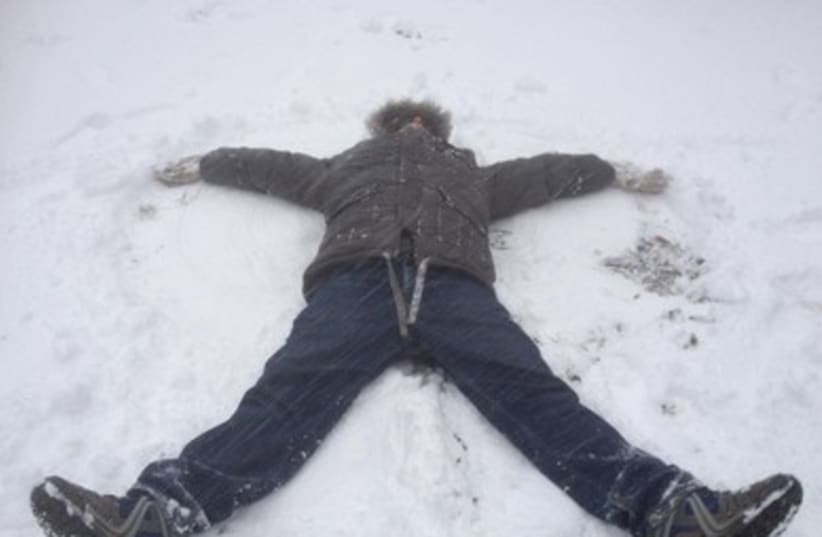
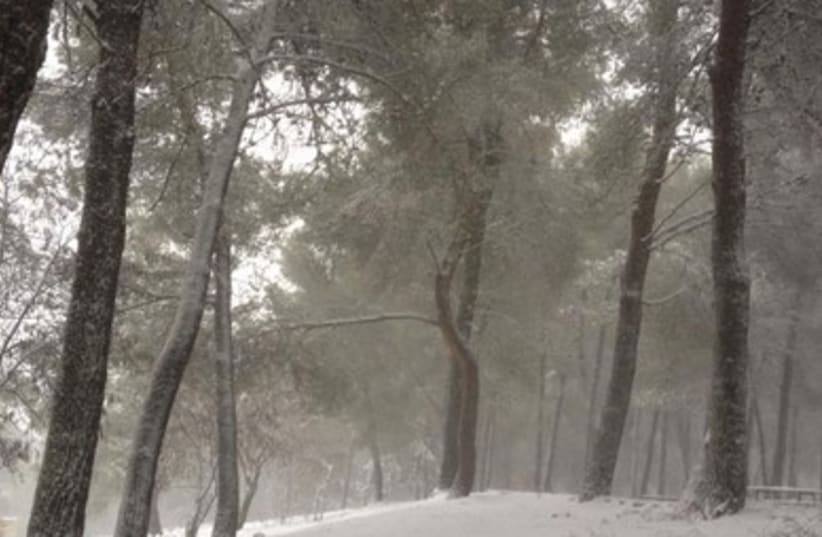
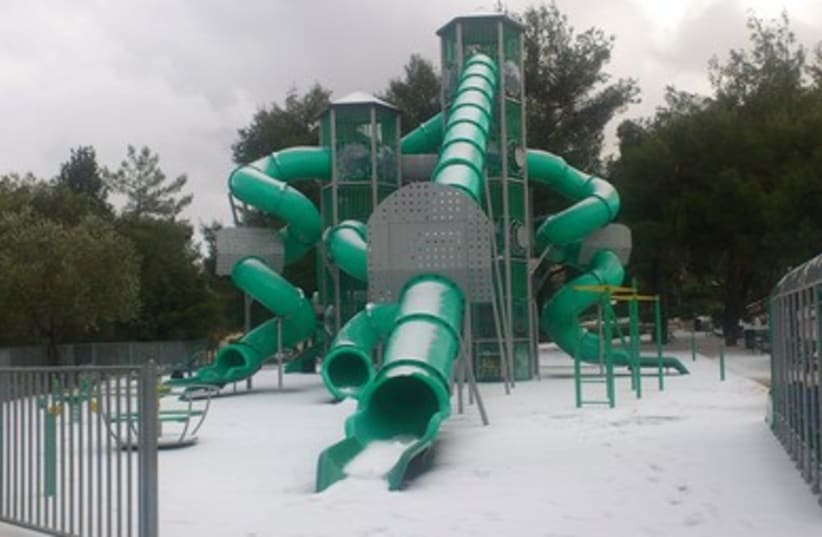
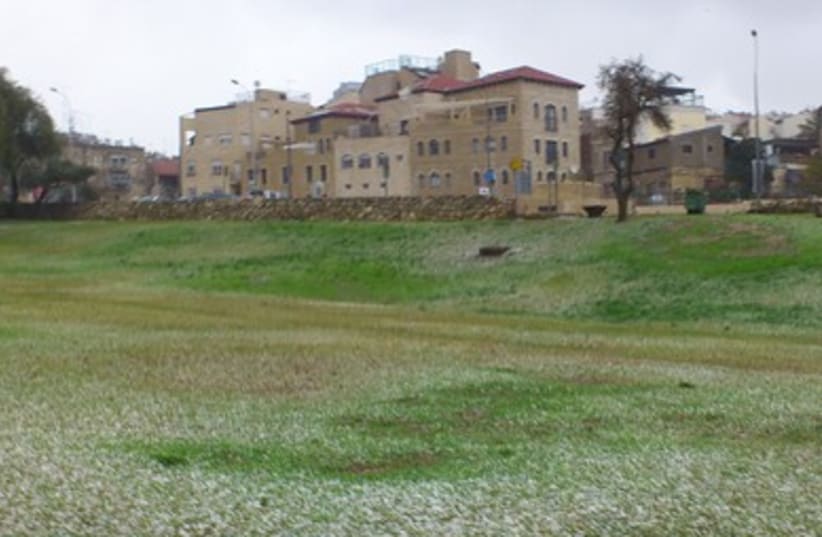
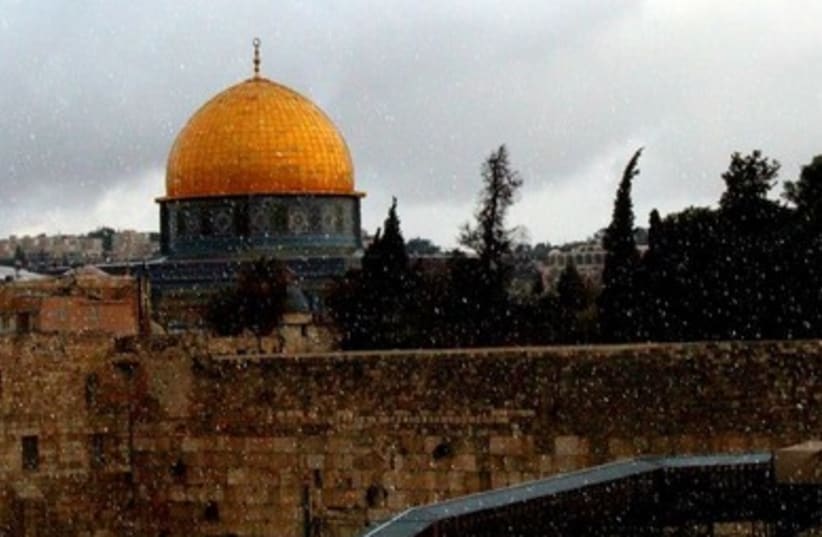
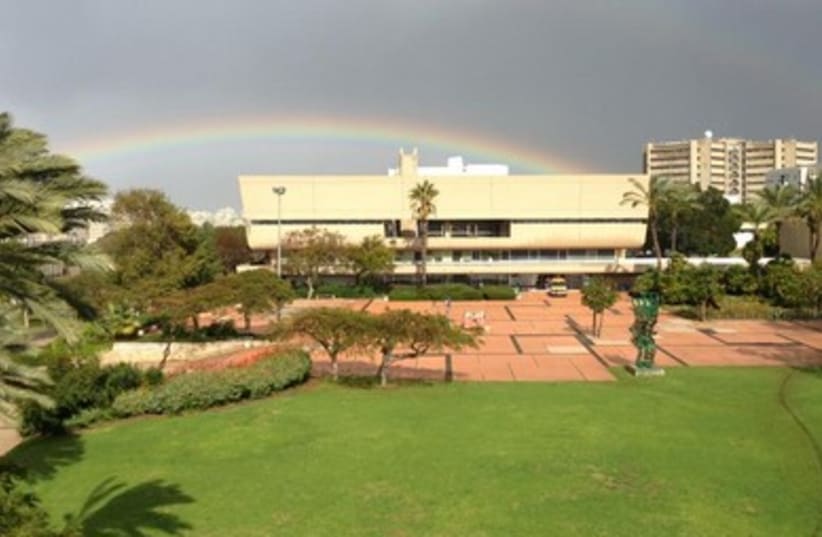
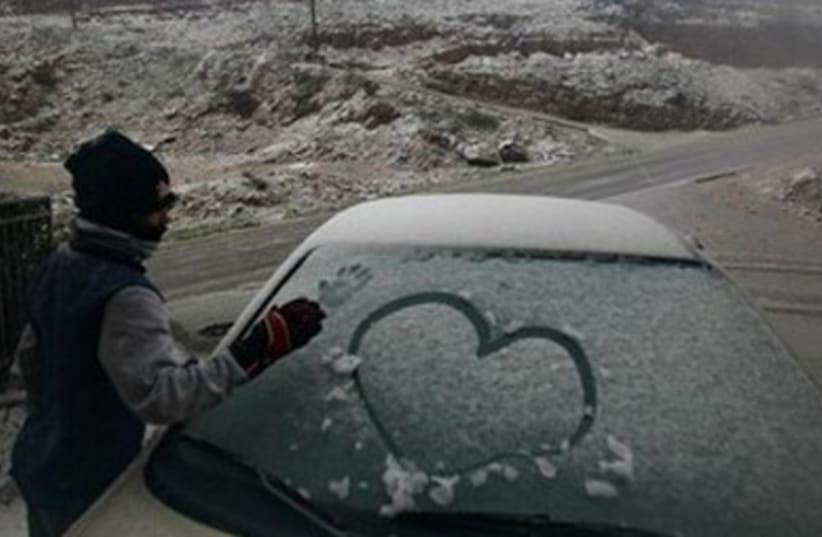
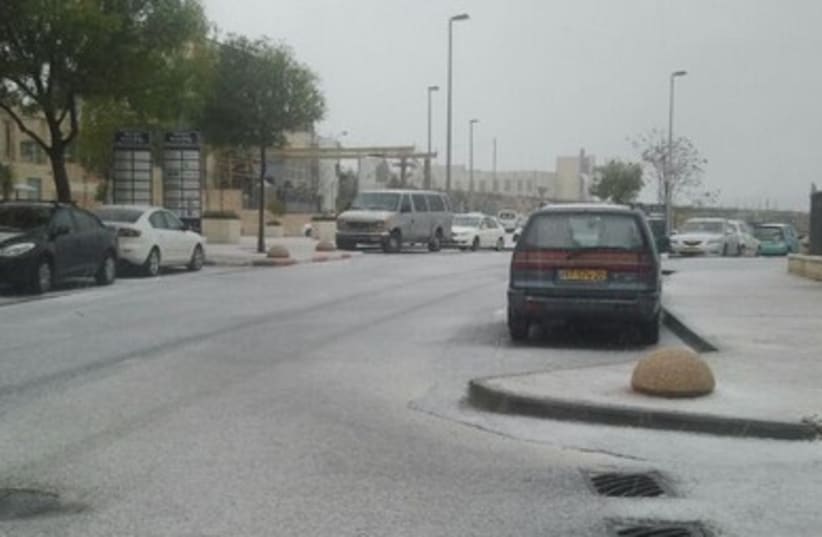
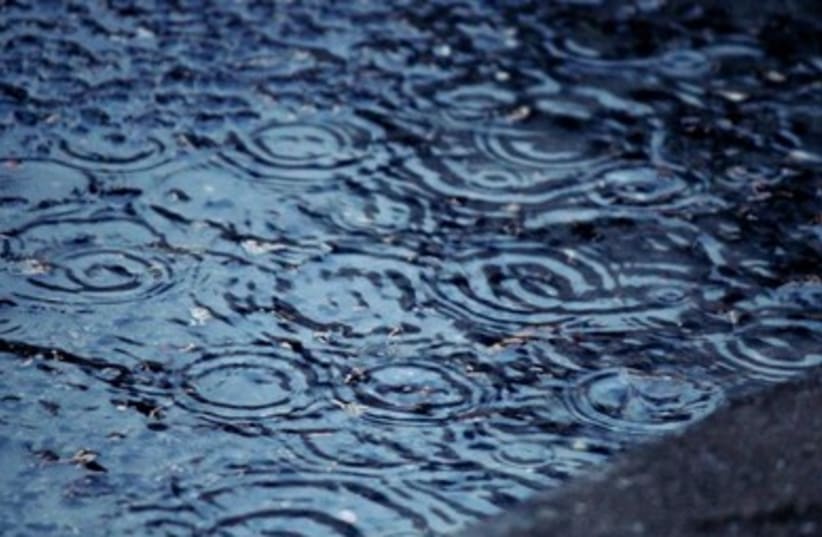
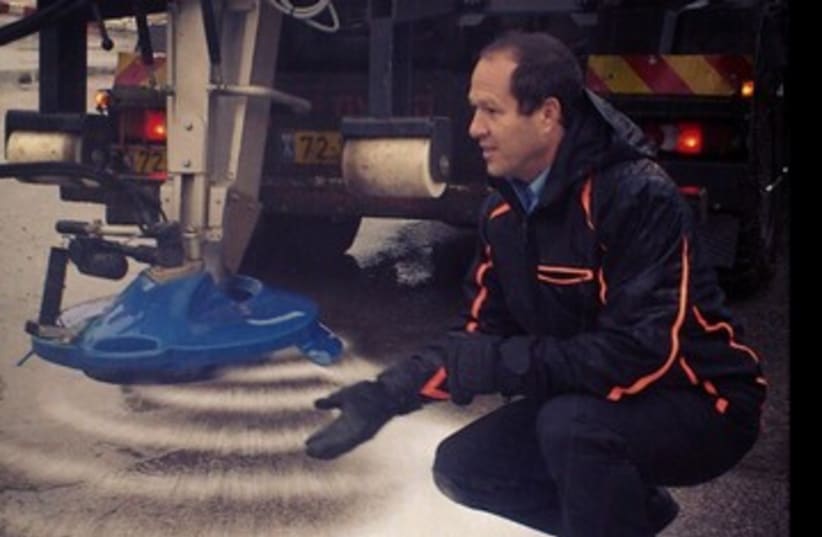
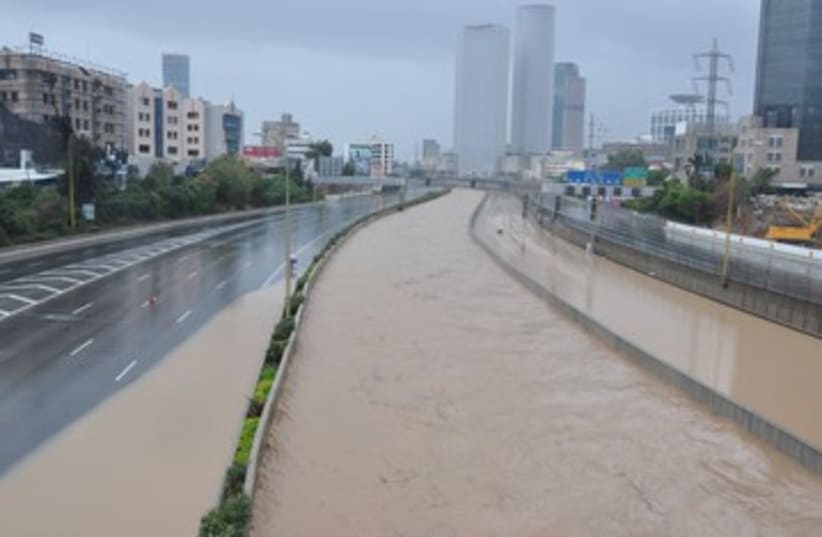

By Wednesday evening, the rainfall for the duration of the storm thus far had accumulated to between 150 and 250 millimeters in the country's North and Center, with some areas even receiving up to 300 millimeters, said Dr. Amos Porat, director of the Climate Department at Israel Meteorological Services (IMS). The southern parts of the country also received some rainfall, with totals amounting to between 20 and 50 millimeters. Meanwhile, strong winds continued to pound the entire country. and snow continued to fall in the northern and central mountain peaks – including in Jerusalem. In perhaps one of the most encouraging aspects of the week's pouring rains, Lake Kinneret's water level stood at 211.34 meters below sea level on Wednesday morning, a 16-centimeter rise from the previous morning and just 2.50 meters from being filled to capacity. By evening, the basin had risen another 7 centimeters, reaching 211.27 meters below sea level and bringing the total rise for this storm period up to 60 centimeters, the Water Authority said. During a briefing on the storm at the Israel Police national traffic control center in Beit Dagan on Wednesday, Prime Minister Binyamin Netanyahu said he was pleased to see that everything was under control and that all the country's infrastructural bodies and emergency response teams were working together to abate problems. "The systems are working well," Netanyahu said. "I have instructed Public Security Ministry Director-General Rotem Peleg to consider compensation for those who have been hurt as a result of the weather."Netanyahu thanked all the emergency and rescue forces working to save lives in cold temperatures and strong winds around the clock – "on behalf of all Israelis.""One month after Operation Pillar of Defense, the rescue forces are again proving that the Israeli home front can rely on them," Netanyahu said. "In the stormy weather, their sole concern is to help Israeli citizens, and they have been very successful."Roads continued to close down due to flooding throughout the day – particularly Road 90 near Beit Shean in the North as well as near the Dead Sea in the South, Road 40 near Nahal Paran in the South, Road 834 near Nahal Hilazon in the North and the Tse'elom Bridge on Road 234 in the South. A flooded Road 889 led to an accident in which 11 children were lightly hurt, and Road 866 was closed after several cars lost their grip on the road – but without injuries.The bodies of a Palestinian women and a Samarian woman washed up on a river bank near Tulkarm on Wednesday, after the car they were traveling in the night before got swept into a creek bed by rising flood waters, police said.The trains fared much better than the roads on Wednesday, with all the rail stations were operating essentially as normal. While Israel Railways warned passengers that there would still be some delays due to the weather conditions, there were no closed stations or rerouted paths like the day before.Between Tuesday and Wednesday, a flooded electricity substation at Hadera Paper initially caused 20,000 clients to lose power overnight, which dozens of IEC employees resolved entirely by 11 a.m. Energy and Water Minister Uzi Landau and IEC Chairman Yiftah Ron Tal visited the site with Hadera Mayor Haim Avitan later that day to assess the situation. "I thank the residents for their patience and endurance, and the IEC employees for their dedication that treated the problem here, and all other locations throughout the country, over the course of this storm," Landau said. "Since we are in the midst of hectic days, I request that the public remain aware and patient. We are all making an effort to handle the problems and to resume regular electricity supplies for all residents of the state."Ron Tal, meanwhile, reminded the public that a "power supply is not a given," particularly referring to the days and weeks of power losses in the northeaster US during the Sandy hurricane. "We have seen in the United States, in Canada and other developed countries around the world that there are power failure events lasting for days," Ron Tal said. "Our events are few and have at most lasted several hours."Also between Tuesday and Wednesday, IEC divers plunged into the sea to clean up litter that had flowed to and was clogging up the cooling systems at Reading and Ashkelon power plants, company CEO Eli Glickman said. As of Wednesday evening, collapsing trees and other mishaps had caused localized power outages in Ramat Gan, Tel Aviv, Haifa, Nazaerth, Ashkelon, Rishon LeZion, Herzliya, Afula and Bat Hefer, the company added. Particularly looking at the situation in Bat Hefer, Labor Party leader Shelly Yachimovich criticized the government for allowing a "tsunami of sewage and rainwater to hit the town due to continuous neglect of infrastructure." Despite repeated appeals from the Emek Hefer Regional Council chairman to the government to repair their systems, nothing was done to help the residents, Yachimovich said. Because there is no existing legislation regarding compensation to families affected by natural disasters, these people will not be able to expedite the rebuilding of their homes, she added. Moving southward to Tel Aviv, whose main Ayalon Highway artery had been deluged by floods on Tuesday, experienced much fewer storm-related issues on Wednesday than the day before. Between 7 a.m. and 2:20 p.m. the Tel Aviv municipality reported handling 149 storm-related incidents, as opposed to the 293 the day before. Most prominent among Wednesday's issues were 53 fallen trees or branches and 20 fallen traffic lights and signs, according to the municipality. Going into Thursday, rain and isolated storms will likely persist in the Center and the South, with snow continuing to fall over the central and northern mountain peaks, including those of Jerusalem, the IMS said. By the afternoon, both rain and snow should weaken, but the risk of flash floods as well as particularly cold temperatures will continue.On Friday there will likely be partly cloudy to mostly cloudy skies with isolated showers, predominantly in the North, according to the IMS. Temperatures throughout the country will remain unseasonably cold, though warmer than those of Thursday. By Saturday, most of the country will experience partly cloudy skies and an additional rise in temperature, though still remaining colder than usual, the IMS said.Ben Hartman and JPost.com staff contributed to this report.
